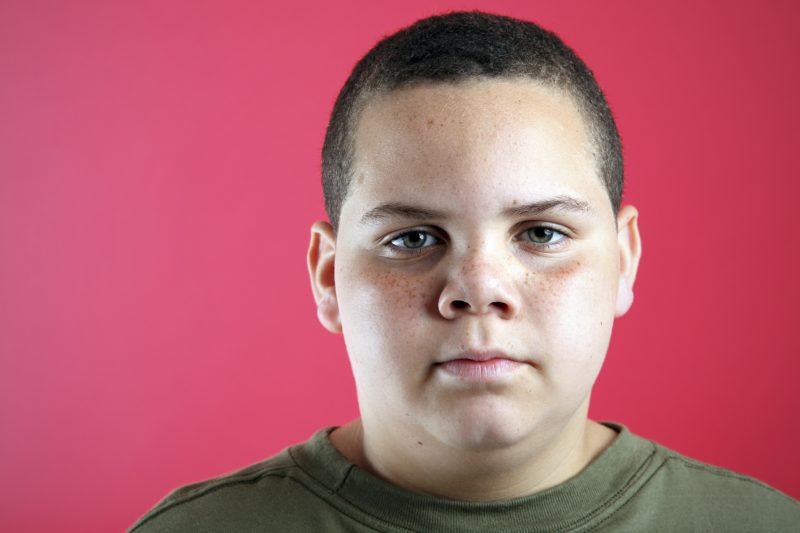
They call it “bean dipping.” Kids come up to an overweight boy at school and pretend to dip a chip under his so-called “man boobs.”
“They think that they are being funny,” said psychologist Geoffrey Putt, who works with obese children in the healthy weight clinic at Akron Children’s. “But it’s torturous.”
Harassment of overweight and obese children is pervasive. It may be the most common type of teasing and bullying. “We see terrible bullying,” said Dr. Putt, director of outpatient therapy. “An obese child is 65 percent more likely to be bullied than a non-obese child. It’s not only common, it’s the norm.
“People often feel safer picking on an overweight child,” he said. “A lot of things are taboo, whether it’s religion, race or socioeconomic status. But for some reason, weight seems more acceptable. There’s a lot of fat shaming.”
People often view excess body fat as a personal failure, a character flaw. The stigma fosters harassment and adds fuel to a host of psychological problems obese children often face, Dr. Putt said. These children are at risk for depression, low self-esteem, poor body image, eating disorders, and behavioral and learning problems.
New research shows weight-based teasing in adolescence may also lead to health problems down the road.
The federally funded study by the Rudd Center for Food Policy and Obesity at the University of Connecticut and the University of Minnesota School of Public Health found that being teased predicted eating disorders, obesity, poor body image and unhealthy weight control in adulthood.
“When you’re younger, your differences may not be something you embrace,” Dr. Putt explained. “You want to blend into the woodwork. You want to become part of the social group and the crowd, and do what they are doing.
“When people tease you about certain features, you become more self-conscious. This may be especially true at the pool or in gym class; those are some of the times where you may stand out more.”
If your child is overweight or obese, you can take steps to help them deal with harassment. Here are Dr. Putt’s suggestions:
Don’t be part of the problem.
Parents sometimes mistakenly think that singling out their overweight children will motivate them to lose weight, Dr. Putt said. But calling attention to their body fat, especially in the presence of others, does not motivate. It signals lack of acceptance, which contributes to negative body image.
“If there’s one person who’s going to say you look nice, shouldn’t it be your mom?” Dr. Putt said.
“If mom is saying, ‘I’m not buying you any more clothes because your fat butt isn’t going to fit into them,’ she’s berating and belittling in a way she thinks is encouraging – ‘tough love.’ But it backfires.”
Help your kids lose weight by committing the family to healthy eating and exercise. Keep it positive.
Help build resiliency.
Strong social supports create a protective environment for kids. Dr. Putt recalled an overweight girl who found acceptance after joining the drama club, a huge turning point for her.
“If you are interested in band, music or the drama club, those can be great activities for building confidence and self-esteem. Not only does it show you can be good and successful, it also gives you a network of people who support you, who love you and want you to succeed.”
Be positive, be a good model.
Create an environment where kids feel comfortable talking about their weight and any problems they’re having with teasing. Focus attention on your children’s strengths and positive attributes. Compliment their successes and help build their self-esteem.
“Loving yourself for who you are, accepting yourself for who you are, a lot of that starts with modeling,” Dr. Putt said.
If you are constantly down on yourself, chasing diet fads and projecting negativity about your own body image, what messages are you sending?
“One of my favorite quotes is: Lose weight because you love your body, not because you hate it,” Dr. Putt said.
“Lose the weight because you want to be more active and healthier, because you want to live longer and be with your family, not because you hate the way you look.”










